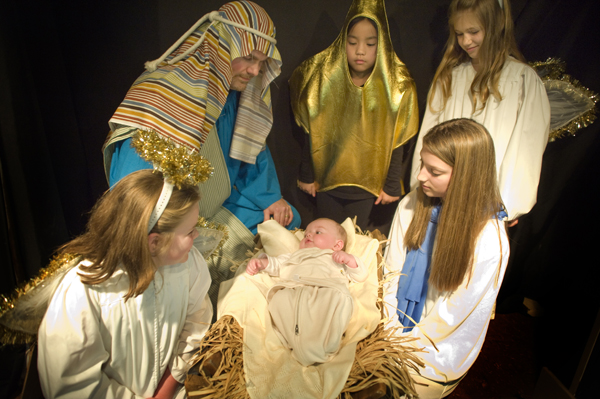 I guess I’ve been living in some kind of “three monkeys” world, but I had never heard of the “Elf on the Shelf” until this year. After reading the post by Kasie Whitener over at Life on Clemson Road about the “Elfing,” I did a little research and found out parents have been using these innocent little creatures to torture their children for several generations.
I guess I’ve been living in some kind of “three monkeys” world, but I had never heard of the “Elf on the Shelf” until this year. After reading the post by Kasie Whitener over at Life on Clemson Road about the “Elfing,” I did a little research and found out parents have been using these innocent little creatures to torture their children for several generations.
According to Wikipedia, the first version was told in the 1960s by Flora Johnson to her own children. It became a family tradition. When her grandson called in 1983 to tell her about the Elf who had showed up in his home, she decided to write her story down and publish it for other children to enjoy. For the next fifteen years, she made over 10,000 Elves and sold them with a children’s story book called “Book One: Christopher Pop-In-Kins Pops In” that her husband, Al, hand published. Her version of the toy and book has won numerous awards and can still be purchased today either online or at select toy stores listed on the company website.
The version reviewed by Kasie was written in 2005 by Carol Aebersold and her daughter Chanda Bell with illustrations by Coë Steinwart. Their version is slicker, more modern and (dare I say, commercialized?) also available at various locations.
However, while the original story was mostly fun, with the little elf coming to spend December playing with the children and only returning to the North Pole on Christmas Eve, the newer one makes the Elf a spy for “that jolly old Elf.” Watching to see if the child is “naughty or nice” and reporting back to Santa every night.
When I read Kasie’s post about this, I was reminded of the year my youngest daughter refused to talk to Santa. She was probably about 5 or 6 years old at the time and I was at a loss to understand why she had suddenly developed such a dislike for this lovable childhood figure. It took some time to get her to admit where her thoughts on the subject had led her, but finally she told me tearfully, “I hate Santa. He’s always watching to see if I’m doing something bad.” Since she had a tendency to let her older sister take the blame whenever they got into trouble, I quickly saw her point.
But this subject has led me to think again about Santa. I, like many other people, am troubled by the commercialization of Christmas. It seems to have become more about the getting than the giving. We spend too much on too many people. Over my lifetime, it has morphed from a religious holiday with St. Nicholas delivering one or two special gifts for children to a multimillion dollar enterprise that can make or break the whole year for many merchants.
Christmas goes up in the stores earlier every year. While the season used to start at the beginning of Advent, it now begins on All Hallows Eve. In fact, I think I saw some Christmas decorations at Lowe’s and Walmart before Halloween this year. At the rate it is going, my great grandchildren will be buying their children’s Christmas gifts and putting up their holiday decorations on Labor Day.
 As our modern society works overtime to be sure that religion is hidden away in a back closet, Christmas is turning back into a Pagan holiday with a frenzied rush of shopping and greed that has little to do with love or generosity. The true Christmas spirit seems lost in the all the hype. But it isn’t gone. You can find it if you really try. It is in the Angel Trees at churches and some businesses. It is in the Community Choir performances and the Christmas Pageants. It is with the carolers who visit rest homes. It is in the little Elf who comes to visit and play with the children instead putting them under surveillance. Christmas is about asking what we can give, not what we will get.
As our modern society works overtime to be sure that religion is hidden away in a back closet, Christmas is turning back into a Pagan holiday with a frenzied rush of shopping and greed that has little to do with love or generosity. The true Christmas spirit seems lost in the all the hype. But it isn’t gone. You can find it if you really try. It is in the Angel Trees at churches and some businesses. It is in the Community Choir performances and the Christmas Pageants. It is with the carolers who visit rest homes. It is in the little Elf who comes to visit and play with the children instead putting them under surveillance. Christmas is about asking what we can give, not what we will get.
We all talk about the “stress” involved in the Christmas season. Maybe that is where it begins. Perhaps we should just give up on the “naughty or nice” idea and let the children feel nothing but happy anticipation. Maybe we’d carry less angst about it all, if we put more effort into helping the less fortunate among us instead of all the rushing around trying to have the “BEST Christmas EVER” for ourselves.
You’re so right about the economics of Christmas. I believe we are all more mindful, though, of what is truly precious to us because of the Connecticut tragedy. What a shame that it takes something so unspeakably horrible to remind us. Thanks for a lovely, thought-provoking piece!
don’t despair. there’s christmas in millions of small towns all over the united states. i see it every time i walk into my hometown church. and it’s obviously still with you. :)
I agree that the perceived need to spend based on obligation creates too much stress and pressure on people.
This year my daughter participated in the Angel Tree program. After we bought the present (a dollhouse), she asked to look at it again. I was afraid that she’d want it for herself, but no–she wanted to see up close what she was giving to her “angel girl.” The valuable lessons we can learn from kids…
I didn’t do well in my Economics class, but there is something wrong when the amount of money spent during the holiday season plays into the nation’s economic health. The more we spend, the better? It warps the true meaning of Christmas.
This is a great piece, April.